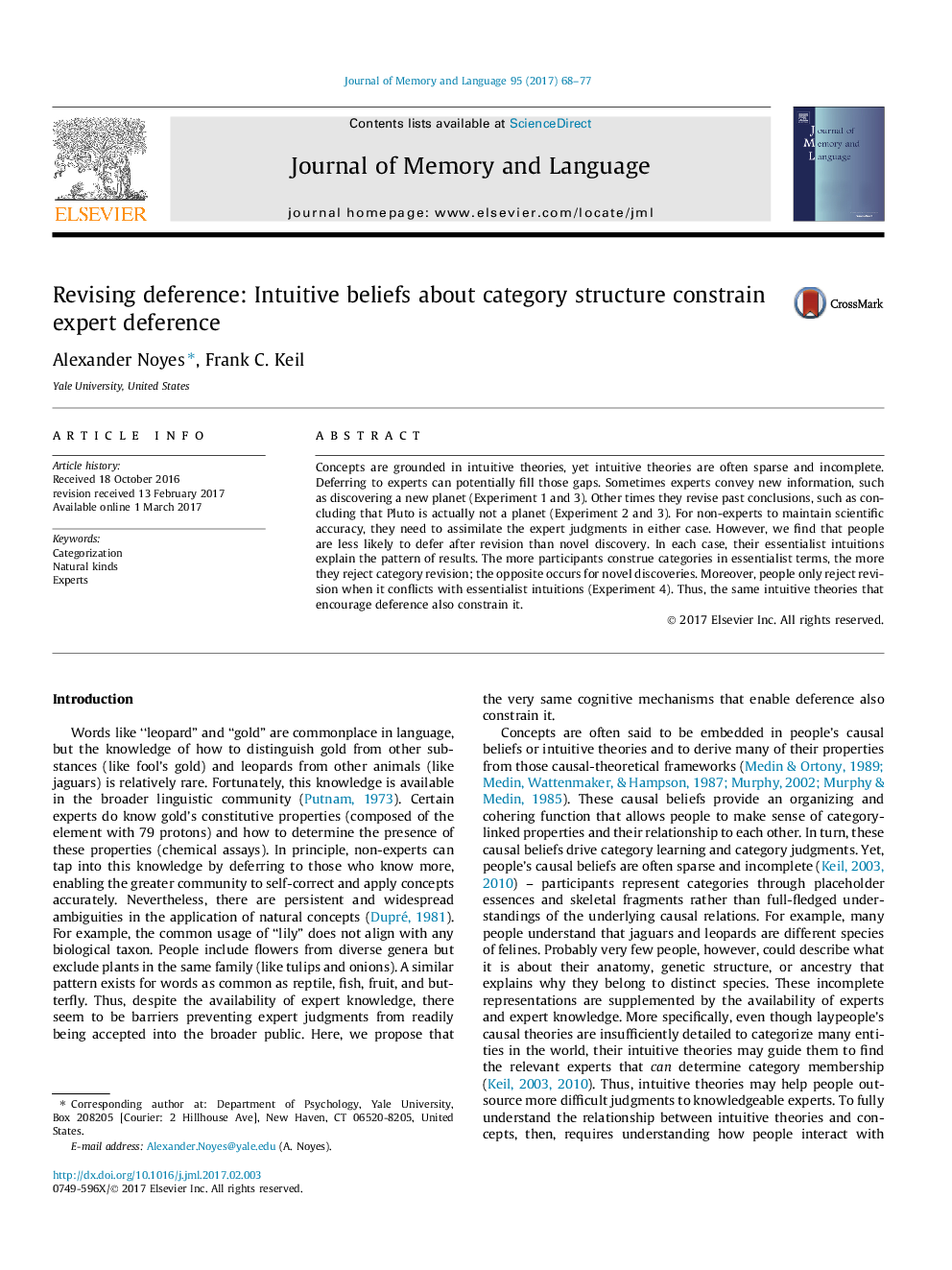| کد مقاله | کد نشریه | سال انتشار | مقاله انگلیسی | نسخه تمام متن |
|---|---|---|---|---|
| 5042493 | 1474624 | 2017 | 10 صفحه PDF | دانلود رایگان |
- People defer to expert category judgments to maintain external validity of words.
- Essentialism promotes deference when experts newly classify an object.
- People withdraw deference though when experts revise past category judgments.
- In the context of revision, deference is lowest for more essentialist categories.
- Revision contradicts essentialist beliefs and thus implies external invalidity.
Concepts are grounded in intuitive theories, yet intuitive theories are often sparse and incomplete. Deferring to experts can potentially fill those gaps. Sometimes experts convey new information, such as discovering a new planet (Experiment 1 and 3). Other times they revise past conclusions, such as concluding that Pluto is actually not a planet (Experiment 2 and 3). For non-experts to maintain scientific accuracy, they need to assimilate the expert judgments in either case. However, we find that people are less likely to defer after revision than novel discovery. In each case, their essentialist intuitions explain the pattern of results. The more participants construe categories in essentialist terms, the more they reject category revision; the opposite occurs for novel discoveries. Moreover, people only reject revision when it conflicts with essentialist intuitions (Experiment 4). Thus, the same intuitive theories that encourage deference also constrain it.
Journal: Journal of Memory and Language - Volume 95, August 2017, Pages 68-77
